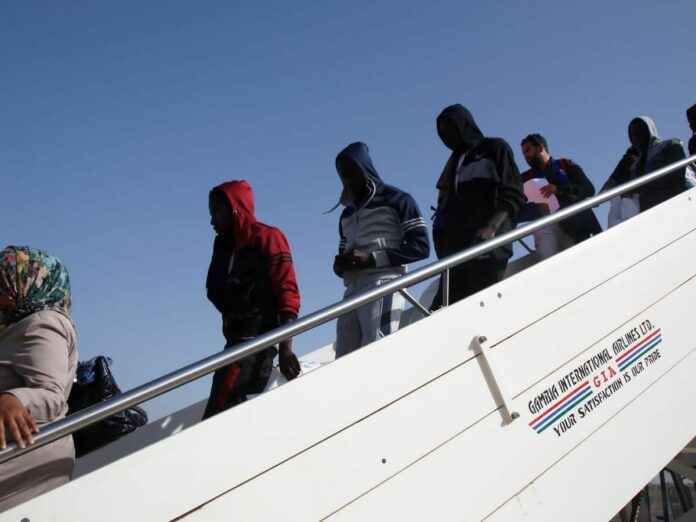By: Fatou Kebbeh
Trauma, according to American Psychological Association (APA), is an emotional response to a terrible event like an accident, rape, or natural disaster. Migration-related trauma to be more specific can rob people of the opportunity to live up to their fullest potential, and this should not be a limit placed on anyone, regardless of their geographic or social position.
A female migrant returnee who asked for anonymity said the back way is not an easy road, and whoever goes through the journey, is most likely to be traumatized. The female returnee said despite these deadly experiences, society judged and pointed fingers at her.
“I barely mingle with people when I came back, all I wanted was to be alone. As a female, it wasn’t a nice experience because I was exposed to hardships, and all kinds of torture and the saddest part is being homeless,” she said.
However, she is now a student, studying Information and Communication Technology (ICT) and the English Language.
Migration is a fundamental human right, however, unlike regular migration, irregular migration could land a person in deadly destinations.
Mustapha Sallah, president of Youth Against Irregular Migration (YAIM) and a migrant returnee, said the journey is very traumatizing, risky and deadly. He said the journey is full of challenges because one faces challenges from the planning to the very end.
“I was jailed for four months, tortured, and lost friends who were killed in my presence. I wouldn’t dare speak, because if I had, I would have been killed,” the backway returnee narrated.
Sallah said seeing traumatic situations and being traumatized is something he took with full faith and that has helped him in healing faster.
“Though we were abandoned during our arrival and didn’t receive the proper psychological support because being counselled for just two days wasn’t enough to erase the trauma we had,” he added.
He calls on the government and NGOs to help migrant returnees, saying they need that to stand strong again.
Madam Kantara, a psychologist, said trauma is caused by a lot of things and these can be physical, verbal, and psychological abuse.
The university lecturer said trauma is something very serious and can affect an individual for a long time, adding that it goes beyond affecting mental health.
“Giving these people money is not going to help them overcome their trauma. It’s [trauma] overcome through a series of discussions that counsellors or therapists can help with,” she said.
According to an article published by Foroyaa Newspaper, on the 17 of August 2017, eight hundred and fifteen (815) Gambian migrants were previously returned, adding that a good number of the returnees were traumatized as a result of the difficult moments they experienced on their way to Libya and while in Libya.




